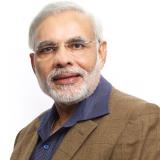 (Note from the editor: In less than a week, we could know who India’s next Prime Minister will be. Non-resident Indians in the United States and those with dual citizenship have until May 12 to cast their vote. The party who elects the most members to Parliament will select the next Prime Minister, Most likely, India’s Prime Minister will be one of the three mentioned below.)
(Note from the editor: In less than a week, we could know who India’s next Prime Minister will be. Non-resident Indians in the United States and those with dual citizenship have until May 12 to cast their vote. The party who elects the most members to Parliament will select the next Prime Minister, Most likely, India’s Prime Minister will be one of the three mentioned below.)
By Khurram Khan
You may have heard the famous slogan: “this is the biggest exercise of democracy in history.” The general elections in India have been in full swing for the last 3+ weeks while we all are left to wonder about the potential outcome. Baffled by the length of these elections? You should be, since for much of the developed world, elections may only last days before there’s a public declaration of a candidate’s victory.
But in India, the country’s 16th general elections since it gained independence from the United Kingdom in 1947, will last from April 7th to May 12th. So what’s up for grabs? 543 parliament seats, the power to control the world’s largest democracy and subsequently, the power to shape the future of an impending economic super-power and select the next Prime Minister.
As an Indian residing in the USA, I have had limited exposure to Indian politics but as they say, with age comes awareness and curiosity. Through personal reading, discussions with family and friends, and the overly-opinionated posts found across the world of social media, I have slowly developed a bit of understanding regarding the current state of India’s politics. The recurring theme seems evident – we will never agree with each other and we all have our favorites.
Lets take a glimpse at the main contenders for Prime Minister:
- Narendra Modi, BJP (Bharatiya Janata Party) – the front-runner, the chosen one, the people’s messiah, these are just a few of Mr. Modi’s nicknames. The current Chief Minister (basically what would be a Governor in the USA) of Gujarat, one of the largest and most economically productive states of India, is riding on waves of unrelenting momentum, political charisma, and persistent backlash against the current government. A favorite to emerge victorious, he has a dark cloud hovering over him due to the infamous riots of 2002 between Muslims and Hindus in Gujarat resulting in the deaths of over 2000 people. The Muslim population holds Mr. Modi accountable, and he was even denied visas to the USA and UK secondary to accusations revolving around human rights violations. Despite these claims to infamy, the economic growth of Gujarat under his regime remains his main claim to fame. Many are hoping that he can apply these same principles to spur economic growth across India.
- Rahul Gandhi, Indian National Congress – the heir apparent, the prince, the rightful successor, are some of Mr. Gandhi’s many nicknames. His lineage is impossible to ignore given that the Gandhi family is practically equivalent to the Kennedy family in America, but be aware that the family has no relation to Mahatma Gandi. But, this lineage is actually hurting him, given the cries of nepotism since the Gandhi family has maintained power for nearly ninety percent of the time since India’s independence. Mr. Gandhi’s lack of oratory skills and general charm are hard to look past as well, so he has little support from the youth who are looking for a new direction.
- Arvind Kejriwal, AAP (Aam Aadmi Party) – in the recent past, a new anti-corruption movement began through the the Jan Lok Pal bill. The movement started with Anna Hazare, a prominent freedom fighter, and shortly thereafter Mr. Kejriwal emerged from his shadows to establish a new political party. In a short span of time, they won the elections in New Delhi – India’s capital city and the 2nd largest metropolitan area in the world – and established some ery promising policies. Their rule was short, only 36 days or so, but gave us a glimpse of the potential.
- Several smaller political parties such as the BSP (Bharatiya Samajwadi Party), Shiv Sena, etc – have limited potential to emerge victorious in the elections, but could work to form a coalition government.
Some of the obvious challenges involved with conducting an election with a participation strength of 800 million people are security and equal opportunity to vote. Past elections have been marred with excessive violence, corruption, limited voting access for rural populations and thus decreased confidence in this allegedly “democratic” government system.
India is an amalgam of religions, languages, cultures, and customs that in and of itself could represent a continent comprising of several different countries.
With a rapidly growing population of 1.2 billion, there will be billions of opinions about the outcomes, candidates, and what is the right direction for the country’s future. Indians want economic success, political stability, social programs for the poverty-stricken population, and the development of an environment that will enable the country to grow individually as family units and compete with the rest of the developing world.
To say that all of the above comprise a huge task would be an egregious understatement, and it is practically impossible to pick one contender as the winning choice to help generate this vast amount of change. Honestly, the best candidate for the near future would be a cocktail of the uncorrupted freshness of Arvind Kejriwal with the the charisma and muscle of Narendra Modi minus the inexperience of Rahul Gandhi. So, who would YOU vote for?
(about the author: Khurram Khan is a Geriatric Medicine Physicians practicing at Emory University. He is of Indian origin and has spent his childhood in several difference countries. This combination is a driving force behind his thoughts and writing. He has a keen interest in exploring the rationale of Indian Americans in an increasingly multicultural USA.)

